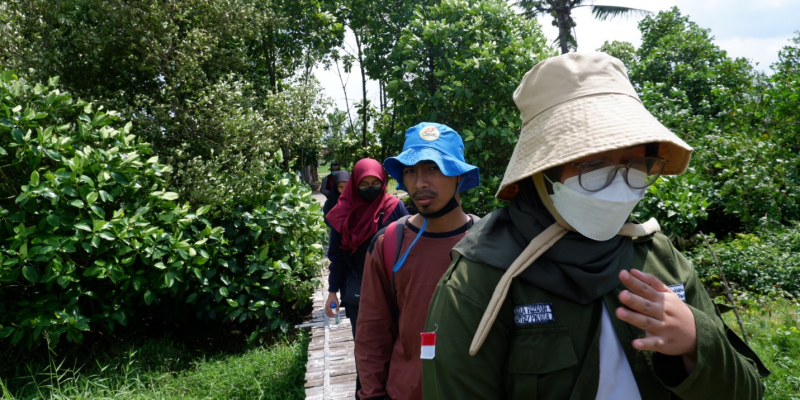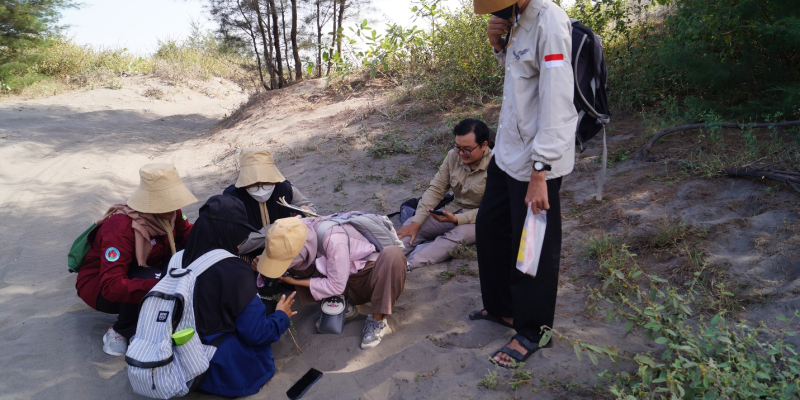The Faculty of Biology at UGM has conducted a survey on the diversity of flora in the coastal area of Bantul Regency, Special Region of Yogyakarta. This flora diversity survey was a collaborative effort between the Faculty of Biology at UGM and the Environmental Agency of Bantul Regency, as part of a series of surveys on biodiversity of flora and fauna in Bantul.
The survey activities took place from May to June 2023. The Faculty of Biology assembled a team led by Dr. Abdul Razaq Chasani, a lecturer from the Plant Systematics Laboratory, which included undergraduate and postgraduate students: Aji Sukma, Bima Kurniawan, Reza Raihandhany, Annisa Mawarni, Ima Laidiya, Lisna Nur Aini, Puspita Kusuma Astuti, Zenith Caitra, and Zildan Basara. This three-month flora survey covered the southern region of Bantul Regency, including coastal areas, river estuaries, and sand dunes. The surveyed coastal areas encompassed nearly the entire shoreline of Bantul, falling within the administrative regions of Kapanewon Kretek, Kapanewon Sanden, and Kapanewon Srandakan. Gumuk Pasir Parangkusumo, the estuary of the Opak River, and the estuary of the Progo River were the three non-coastal locations selected for the survey. The chosen coastal areas were relatively secluded, avoiding touristy locations to obtain more natural results and reduce potential anthropogenic influence. The survey was conducted by exploring along the shoreline and accessible pathways leading to the beach. Flowering plants (Angiospermae) encountered along the route were recorded and documented using cameras. Samples that could not be identified on the spot were brought back to the Plant Systematics Laboratory for further examination.
Remarkably, the survey team recorded a total of 141 species of flowering plants from 47 families. Several species composing the coastal vegetation formations were consistently found in nearly all survey locations, such as Ipomoea pes-caprae (beach morning glory), Spinifex littoreus (beach spinifex), Canavalia rosea (beach bean), Calotropis gigantea (giant milkweed), Casuarina equisetifolia (ironwood), and Pandanus tectorius (screw pine). The timing of the survey allowed for comprehensive observation of the entire plant anatomy, as nearly all observed species were in bloom.
These outstanding results underscore the importance of cooperation and collaboration between government agencies and educational institutions. The quantity and quality of research conducted in this manner can be used by agencies to formulate policies that involve educational institutions and local communities. Aligned with the Sustainable Development Goals (SDGs), including elements like terrestrial life, sustainable communities, and quality education, it is hoped that agencies will design regulations that support the preservation of local native plants and their interactions with the surrounding community. This is especially crucial in realizing the vision of the Governor of Yogyakarta for 2022-2027, which aims to empower the southern region through a comprehensive approach from various aspects.




